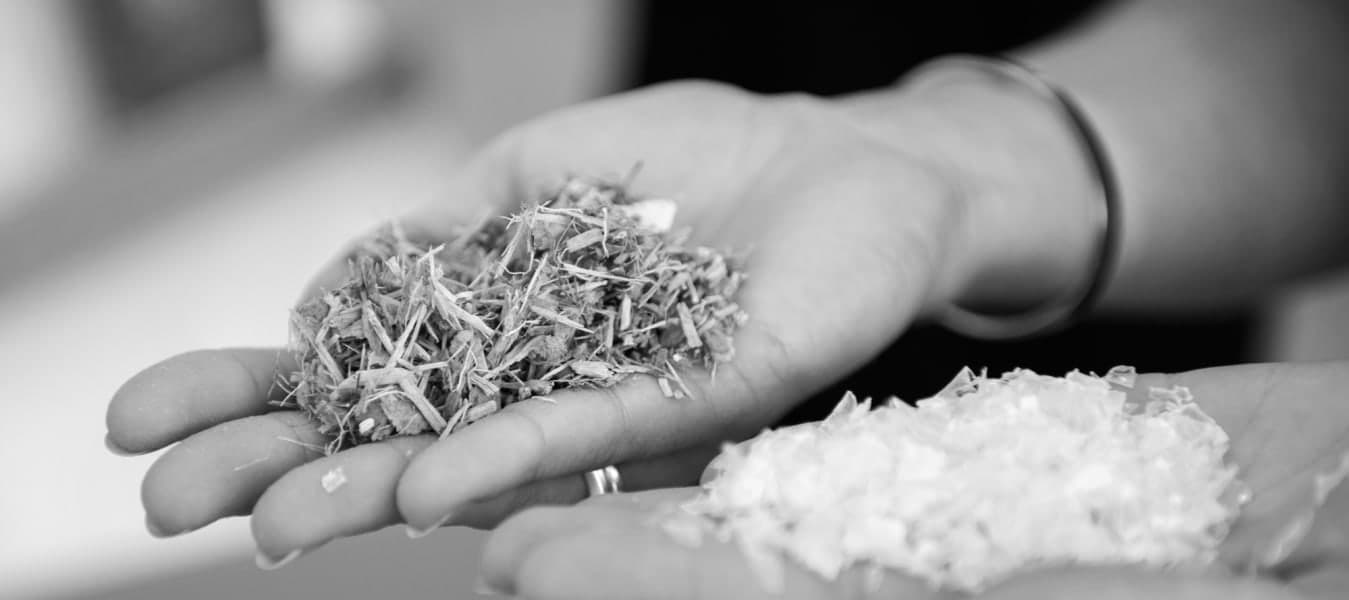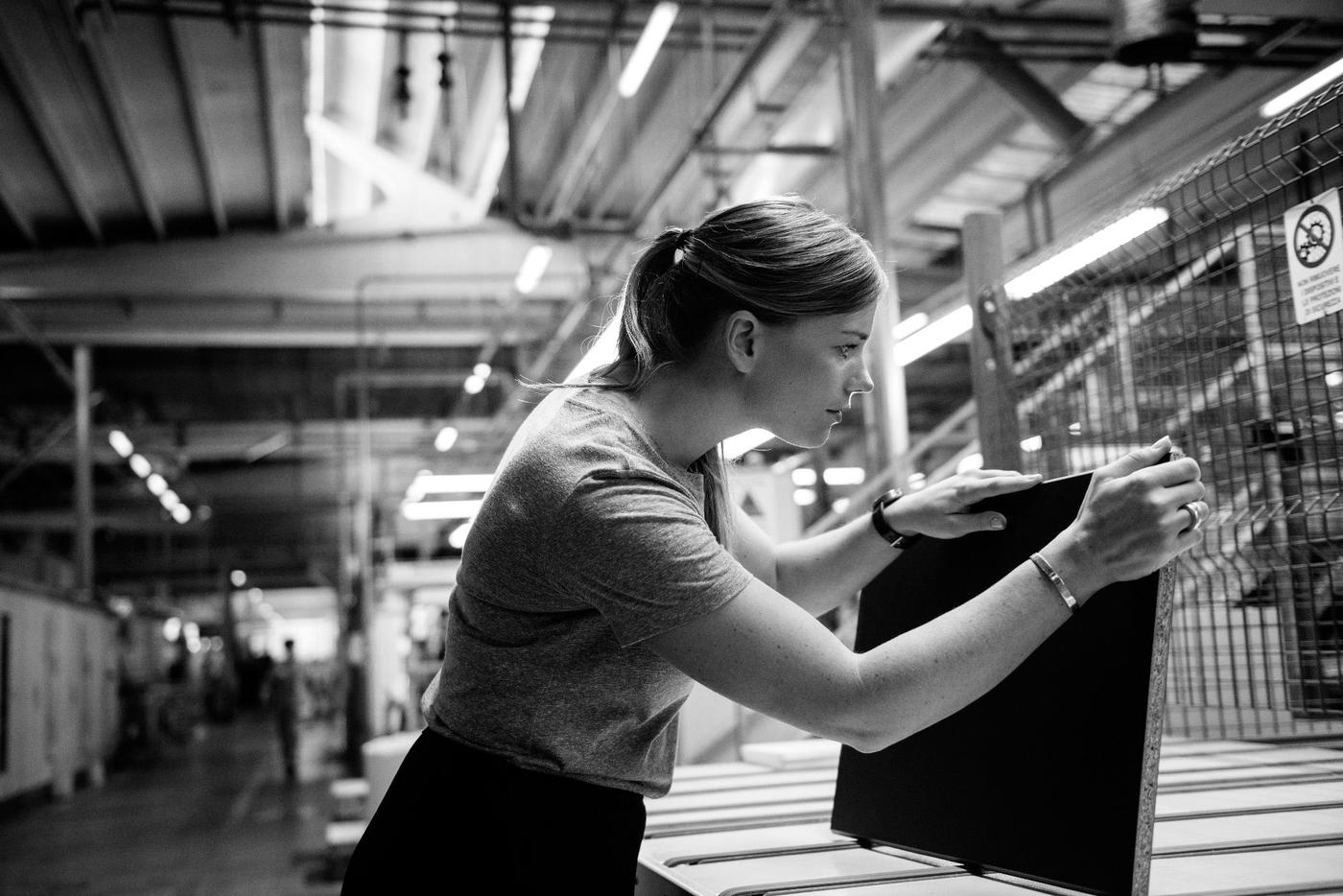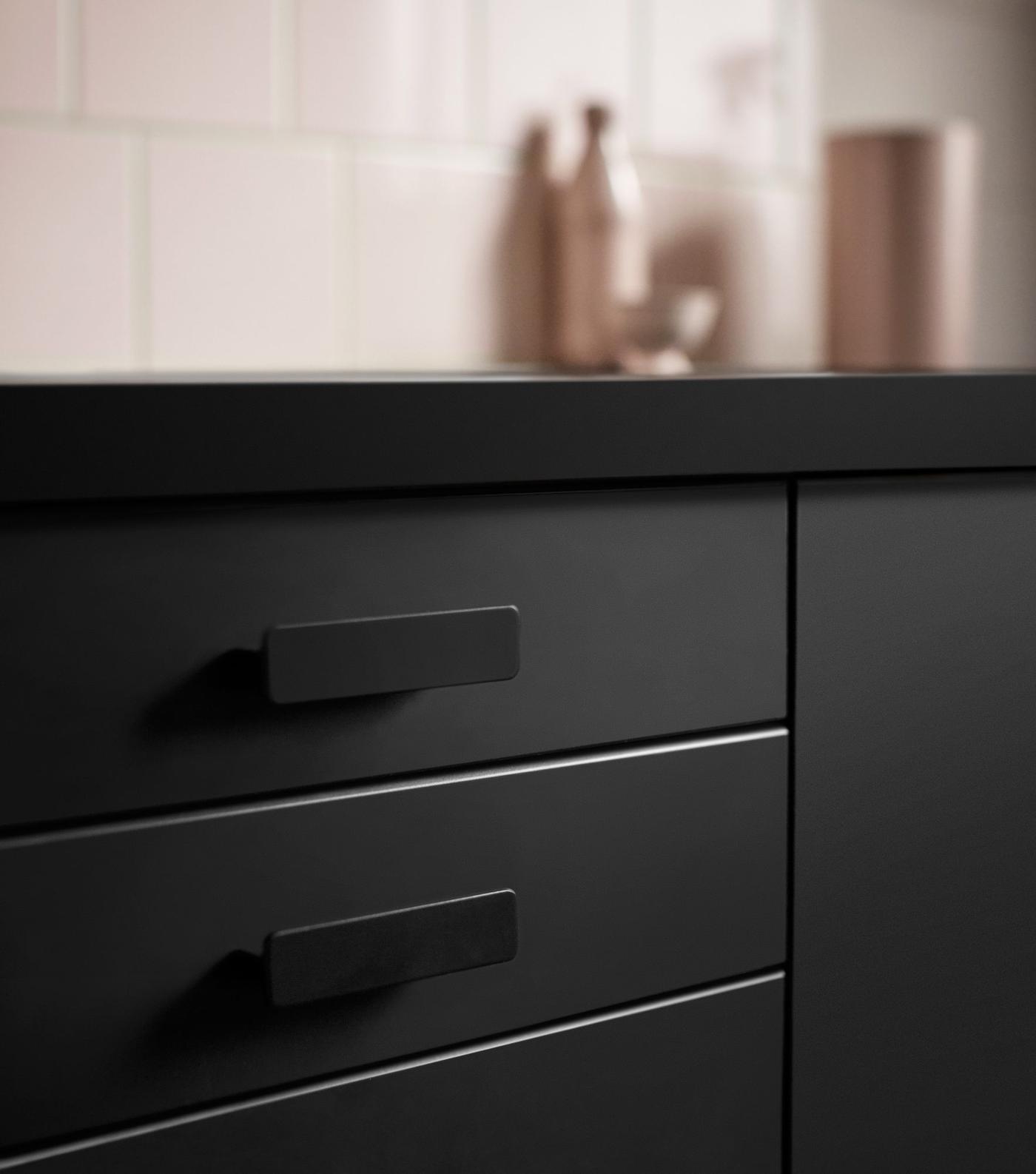
Wonder of waste
In collaboration with one of their suppliers, IKEA has produced a first of its kind kitchen front. What’s so special? Well, it is completely made out of waste.
The kitchen front has been given a more sustainable future. This is all thanks to a new material developed by IKEA together with their Italian supplier. The new kitchen door KUNGSBACKA, looks just like any other front, but KUNGSBACKA is the first of its kind that is made completely out of recycled wood and recycled PET-bottles. Anna Granath, product developer at IKEA of Sweden, explained to us; ”As far as we know, this is completely new on the market.”
Anna has been the project leader for the project team at IKEA that sparked the conversation two years ago with one of their suppliers about what the future of sustainable material holds. ”What we do at IKEA has a big impact on the environment because we work with large quantities. With the new material we can avoid using an oil-based plastic and produce more sustainably, without having to compromise quality, form or price.
New times call for new ways of thinking, states Anna. ”We need to become better at using the planet’s resources in a smart way. We need to start seeing PET-bottles and other disposed material as useful resources rather than just waste.”

“You have most likely consumed a bottle of water in 25 minutes, but recycled and reused as a foil in a kitchen door the same amount of plastic gives it a lifespan of at least 25 years.”

About 25 half-liter plastic bottles are needed in order to cover the matte black finish on KUNGSBACKA. This is an important first step for Anna and her colleagues in order to start the process to end all usage of new, oil-based plastic. ”We need to find alternatives for a circular system, where we not only think cradle to grave, rather cradle to cradle” states Anna.
Bottles reused: Each year approximately 100 billion PET-bottles are used by consumers. Only 30% are recycled. The rest however, are turned into landfills or disposed of at sea. Many efforts around the world are now focusing on the alarming plastic waste at sea. It is estimated that each bottle has a degradation period of a shocking 700-1000 years.